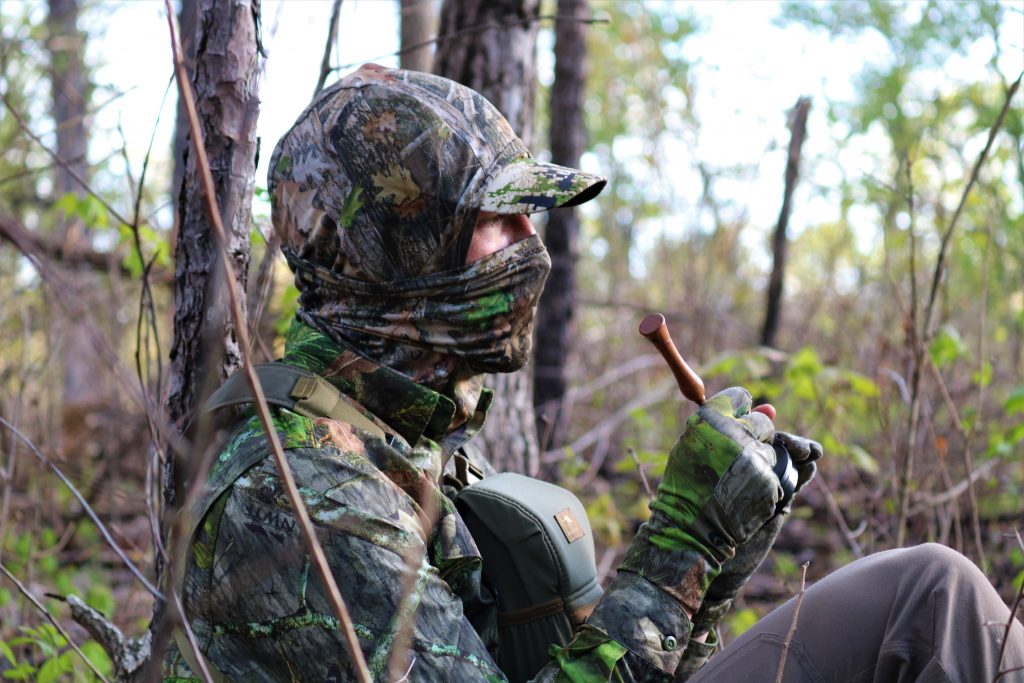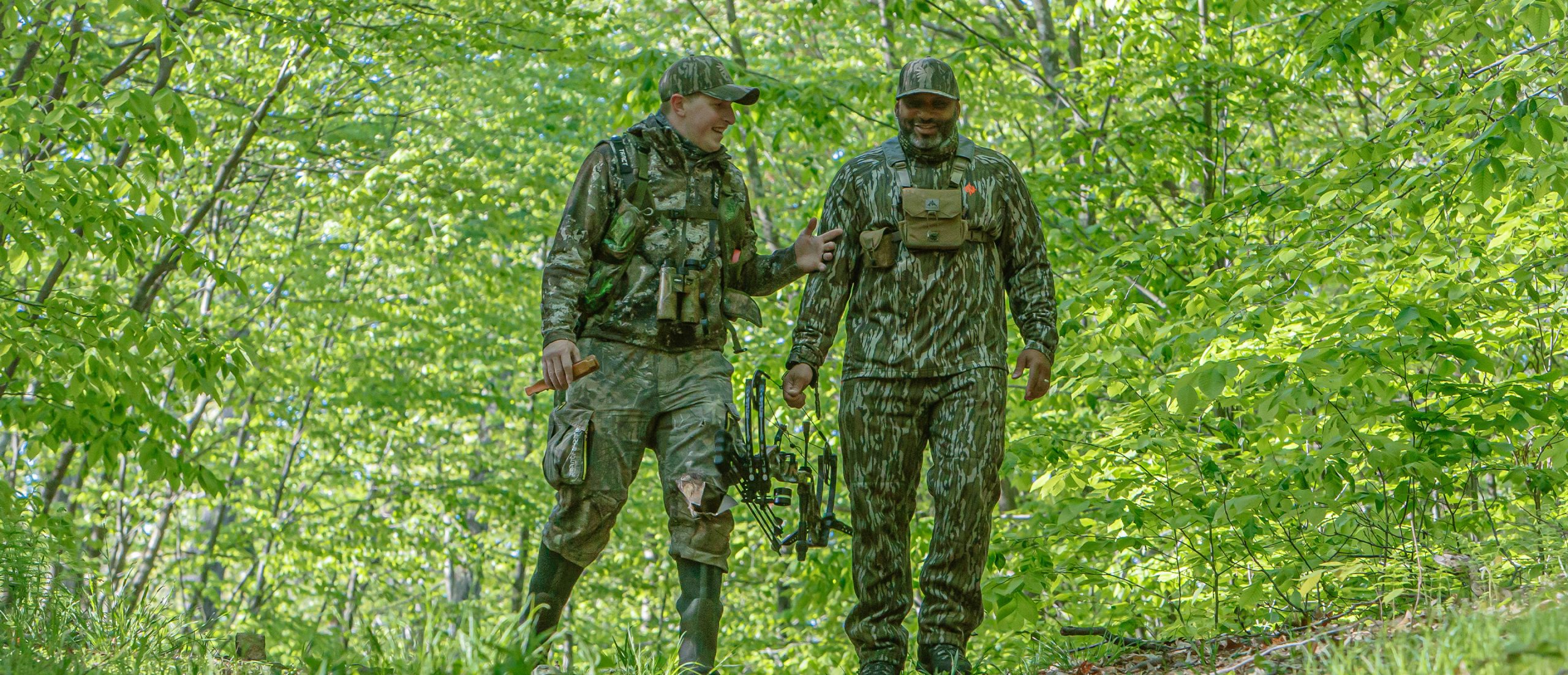Lessons Learned from a Beginner’s Turkey Hunt
After four days immersed in Arkansas’ Ozark National Forest, camping and hunting for wild Eastern turkey, I depart with invaluable lessons in the pursuit of this elusive game bird.
Although my tag remains unfilled, I returned home with a deep sense of fulfillment and gratitude for the lessons learned and memories made with my family. These lessons will undoubtedly help me become a better hunter as I continue my journey in pursuit of these remarkable birds.
The Importance of Preparation
Months of planning and preparation for my turkey hunt through e-scouting and practicing with and patterning my shotgun fueled my excitement for the upcoming adventure. However, having never hunted in the dense hardwood forest that characterizes the Ozarks, my nerves grew in tandem with my anticipation. Nevertheless, through proper preparation and time spent studying the area, I was able to gain a newfound sense of confidence—which was invaluable to the upcoming hunt.
For this hunt, I was lucky enough to draw a tag for Sylamore Wildlife Management Area in North Central Arkansas. The topography of the WMA belongs to the Ozark Mountains' Springfield plateau, characterized by hardwood forests, rolling mountains with gently sloping ridges and lush valleys.
Growing up in Arkansas, I have enjoyed many of the amazing outdoor recreation opportunities the Natural State has to offer; however, hunting was something neither I nor anyone in my family did. It wasn’t until I married my husband that I started my journey as a hunter, making our trip back to Arkansas from out of state for this hunt even more special for me.
We arrived in Arkansas the evening before opening day and set up our camp before heading out into the woods in an attempt to scout out a good location to set up the following morning. Being six hours away, we could only e-scout the area beforehand and take guidance from our grandfather, Leslie Breger, who had seen turkey in the area during previous hunting trips last fall. Unfortunately, fierce winds made it difficult to hear anything other than the deafening sound of rustling leaves.
Perseverance and Learning from Each Day
On the opening day of my hunt, I was disappointed to find no signs of turkey, and as we hiked back to camp, disappointment hung heavy in the air. However, my mood shifted as my husband, dog, and I gathered around the campfire to enjoy a great meal and discuss our plans for the next day's hunt.
With renewed determination, we set out early the next day and made our way to a grassy meadow, where we placed my decoy. Positioning myself at the base of a pine tree that bore the signs of a recent prescribed burn in the forest, I sat watching the sun rise over the trees and listening for the faint tree calls of roosted birds. As I settled into position, my husband, Aric, began his turkey calls, soft and quiet to start with increasing intensity as the morning drew on, hoping to draw the attention of any nearby gobblers.

After some 15 minutes of soft calling, a thundering gobble pierced the silence from our right. Slowly, we turned towards each other with a shared sense of excitement, affirming what we both heard. In that moment, my heart raced, and all traces of sleepiness vanished. We spent the next twenty minutes calling and listening to the gobbler's responses from his roost. With anticipation building, we patiently waited for any signs of his approach. However, enticing the fired-up gobbler to cross the deep draw and creek that separated our ridges proved to be a more challenging task than we anticipated. Soon after flying off the roost, the gobbler gave its last few gobbles as if to say, “I’ll be over here if you’re interested,” as he headed up the ridge to the east, bringing him farther from us. We sat for another hour, hoping he might sneak back around to check out the hen he heard that morning, but as the day reached noon and the gobbler had not appeared, we reluctantly gathered our gear and headed back to camp.
Despite the morning’s frustration, we decided to hike that evening to the ridge located opposite of where we had been earlier that morning, in hopes of catching the gobbler returning to his roost. Although we encountered a couple of hens passing by the area where we had set up, there were still no toms in sight. As the sun faded over the hills, we managed to catch two or three gobbles from a turkey that sounded to be some 350 yards away. As the stars began to shine overhead and the barred owls started their nightly exchange, we knew our day had come to an end, but a plan was developing that gave us hope for the morning.
Unfortunately, after one final early morning, the last day of our hunt proved to be no more successful than any of the other days, and we hiked back to our camp to pack up and head out. Despite the fact that the hunt felt like a failure, we never lost our determination and continued to persevere every day. In our commitment to the pursuit, we gained invaluable knowledge to help us become better hunters overall—even if we did not achieve our goal.
Appreciating Unsuccessful Hunts
Our long drive home gave me the opportunity to reflect and provide some introspection on my experience. The lessons I learned will undoubtedly help me grow as both a hunter and a human.
Hunting is a journey that requires patience, perseverance, and humility, and the end result is a deeper connection to the natural world and a greater appreciation for the challenges it presents.
As hunters, we must accept that failures are an inevitable part of the process. In fact, these failures become the foundation stones upon which we build our skills and knowledge. Each unsuccessful hunt is an opportunity to learn and grow, to understand the behavior of the animal we're pursuing and the habitat in which they live. It's through these experiences that we advance on our journey in the oldest tradition of humanity.
Ultimately, the pursuit of what is difficult is what makes hunting such a rewarding experience. The sense of defeat that comes with a failed hunt is a humbling experience that forces us to reflect on our actions and learn from our mistakes. Putting in this amount of effort can only make the sense of accomplishment and pride that comes with bagging my first turkey much greater, making all the struggle worth it.
